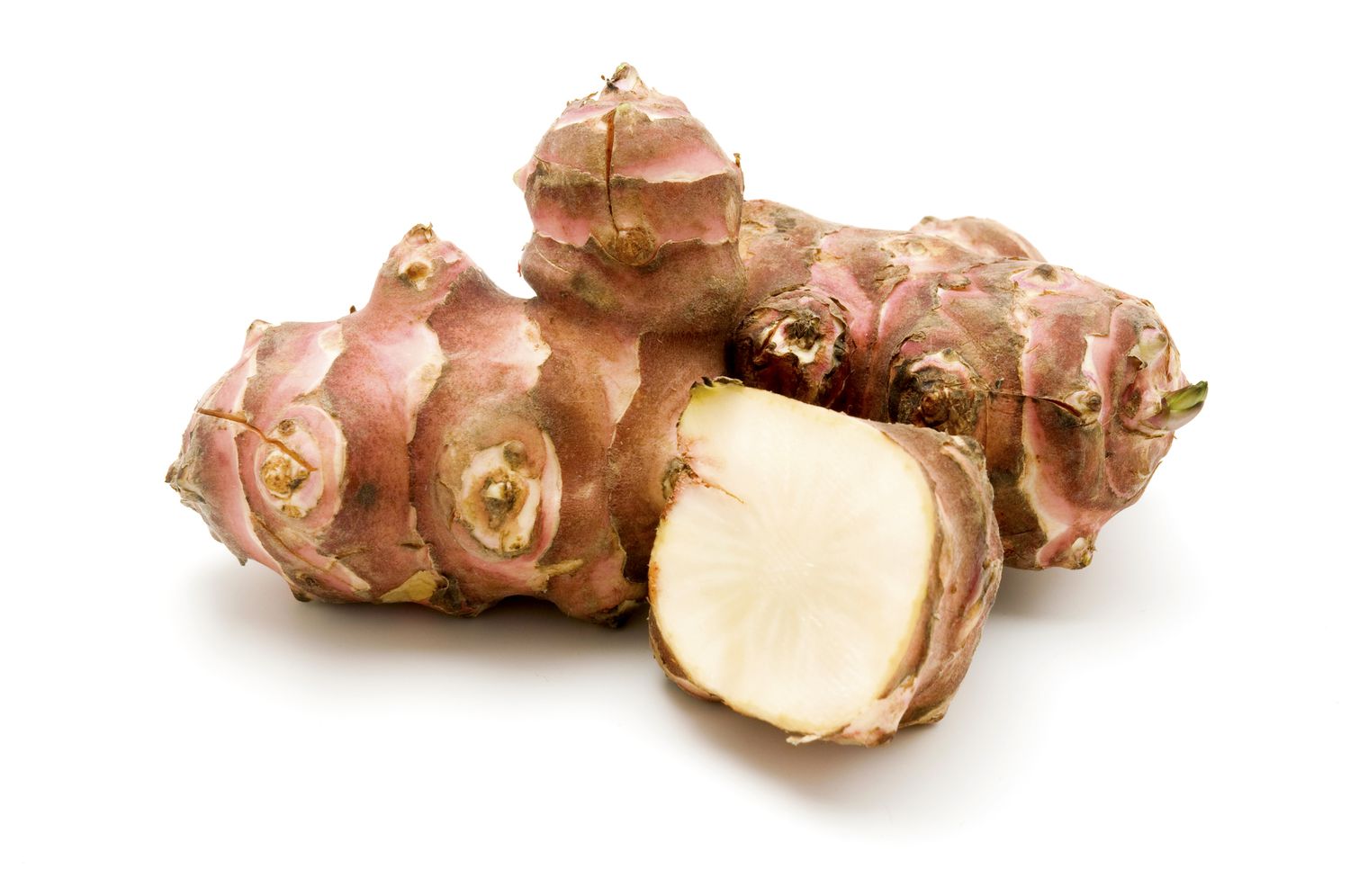
Jerusalem artichokes, also known as sunchokes, might sound like they come from the Middle East, but they're actually native to North America. These knobby tubers are part of the sunflower family and pack a punch when it comes to nutrition. Rich in iron, potassium, and fiber, they offer a healthy alternative to potatoes. Their nutty, slightly sweet flavor makes them versatile in the kitchen, perfect for roasting, mashing, or even eating raw. Despite their name, they have no relation to Jerusalem or traditional artichokes. Curious about this unique root vegetable? Here are 25 facts that will make you appreciate the Jerusalem artichoke even more!
Key Takeaways:
- Jerusalem artichokes, also known as sunchokes, are not from Jerusalem and are not related to artichokes. They are native to North America and are rich in inulin, a type of fiber that aids digestion.
- Jerusalem artichokes are versatile in the kitchen and packed with nutrients. They can be grown in well-drained soil, and their tubers can be used to make biofuel. However, they may cause gas due to their high inulin content.
What is a Jerusalem Artichoke?
Jerusalem artichokes, also known as sunchokes, are a type of tuber. Despite their name, they have no relation to Jerusalem or artichokes. Let's dive into some fascinating facts about this unique vegetable.
-
Jerusalem artichokes are native to North America. They were first cultivated by Native Americans long before European settlers arrived.
-
The plant is a member of the sunflower family. Its scientific name is Helianthus tuberosus.
-
They are not related to artichokes. The name "artichoke" comes from their similar taste to globe artichokes.
-
Jerusalem artichokes are rich in inulin. Inulin is a type of fiber that can help with digestion and blood sugar regulation.
-
They can be eaten raw or cooked. Raw, they have a crisp texture similar to water chestnuts. Cooked, they become soft and slightly sweet.
Nutritional Benefits of Jerusalem Artichokes
Jerusalem artichokes are not just tasty; they are also packed with nutrients. Here are some key benefits.
-
High in iron. This helps in the production of red blood cells.
-
Rich in potassium. Potassium is essential for heart health and muscle function.
-
Low in calories. This makes them a great addition to a weight-loss diet.
-
Good source of vitamin C. Vitamin C boosts the immune system and promotes healthy skin.
-
Contain antioxidants. These help protect the body from harmful free radicals.
Growing Jerusalem Artichokes
If you have a green thumb, you might be interested in growing your own Jerusalem artichokes. Here are some tips.
-
They thrive in well-drained soil. Make sure the soil is loose and not too compact.
-
Plant them in spring. This gives them enough time to grow before the first frost.
-
They can grow quite tall. Some plants can reach up to 10 feet in height.
-
Harvest in late fall. The tubers are ready to be dug up after the first frost.
-
They are perennial plants. Once planted, they can come back year after year.
Culinary Uses of Jerusalem Artichokes
Jerusalem artichokes are versatile in the kitchen. Here are some ways to use them in your cooking.
-
Great in soups. They add a creamy texture and a slightly nutty flavor.
-
Perfect for roasting. Toss them with olive oil and herbs for a delicious side dish.
-
Can be pickled. Pickled sunchokes make a tangy and crunchy snack.
-
Ideal for salads. Slice them thinly and add them to your favorite salad for extra crunch.
-
Make chips. Thinly slice and fry them for a healthier alternative to potato chips.
Interesting Facts About Jerusalem Artichokes
Here are some quirky and lesser-known facts about Jerusalem artichokes.
-
They were once called "Canada potatoes." Early European settlers in North America gave them this name.
-
Thomas Jefferson grew them. The third U.S. president cultivated Jerusalem artichokes in his garden.
-
They can cause gas. The high inulin content can lead to digestive discomfort for some people.
-
Used in biofuel production. The tubers can be converted into ethanol, a type of biofuel.
-
They are deer-resistant. If you have a garden, you won't have to worry about deer eating your Jerusalem artichokes.
The Final Scoop on Jerusalem Artichokes
Jerusalem artichokes, also known as sunchokes, pack a punch with their unique taste and impressive health benefits. These tubers are rich in inulin, a type of fiber that promotes gut health and helps regulate blood sugar levels. They’re also a great source of iron, potassium, and vitamin C.
Whether roasted, sautéed, or eaten raw, sunchokes add a nutty, slightly sweet flavor to dishes. They’re versatile and can be used in soups, salads, or even as a potato substitute.
Growing Jerusalem artichokes in your garden is pretty straightforward, and they’re known for being hardy and low-maintenance. Just be mindful—they can spread quickly.
So, next time you’re at the market, grab some sunchokes and experiment with this nutritious, tasty tuber. Your taste buds and your health will thank you!
Frequently Asked Questions
Was this page helpful?
Our commitment to delivering trustworthy and engaging content is at the heart of what we do. Each fact on our site is contributed by real users like you, bringing a wealth of diverse insights and information. To ensure the highest standards of accuracy and reliability, our dedicated editors meticulously review each submission. This process guarantees that the facts we share are not only fascinating but also credible. Trust in our commitment to quality and authenticity as you explore and learn with us.


